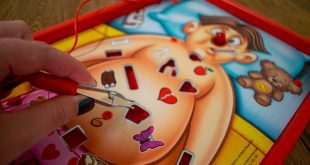 This problem is familiar to many women.
This problem is familiar to many women.
If You are familiar with the problem of swollen how likes to say my friend: “like a water blister” of the face in the morning, it is time to figure it out.
I will mention the most common causes morning puffiness, ranging from the banal to serious “bells” on the part of the organs and systems of the body:
– Salty foods at dinner at night and before sleep.
– Extremely salty food (eg. herring) for dinner – even if it occurs within 5 hours of bedtime.
– Drink large volume of water in the afternoon.
After 17.00-18.00 it is desirable to drink no more than 0.3 l H20. Exception: training in the evening.
– Very dense dinner. Greasy, heavy food (not even salt!) will lead to the accumulation of fluid in body tissues. A lot of protein and fat in the diet water retention.
Light carbs for dinner and before sleep (all sweets, flour, sweet fruits, berries). Sugar also delays the fluid in the body.
– Alcohol in the evening. Blocks the kidneys and prevents liquid filtration.
– Drink more water than Your body needs (the standard calculation of 30 ml on 1 kg body mass is partly a myth, because you can eat a lot of fruit or live at the North pole).
– Drink heavily digestible, low-quality water that is not used by the cells adequately, and remains in the intercellular tissue. The water quality more important than quantity! High-quality water, at least, should have an alkaline potential.
– Very little exercise during the day.
– Sleep face in the pillow or in any other position, when disturbed lymph flow from the lymphatic vessels of the head.
– Go to bed extremely late (after 01.00). Thus disrupt many physiological processes in the body associated with biorhythms.
– I Wake up extremely late (after 07.00). Kidneys normal start to Wake up as early as 04:00. Belated rise doesn’t allow them to fully operate in accordance with their biological rhythms.
– Take hormonal contraceptives and other hormonal drugs.
– If all the above is not about You (not believe)), then you need to check the status:
1) thyroid gland (thyroid panel, ultrasound)
2) kidneys (urinalysis, ultrasound)
3) the state of the biliary system (b/x blood test: liver function tests; ultrasound)
4) hormones (analysis on sex hormones – your doctor will tell you)
Reasons of a medical nature a lot more, but I suspect you have something to think about.. 🙂








